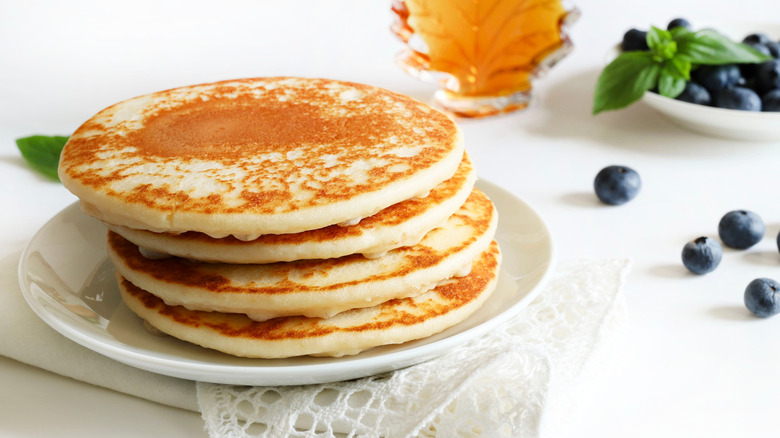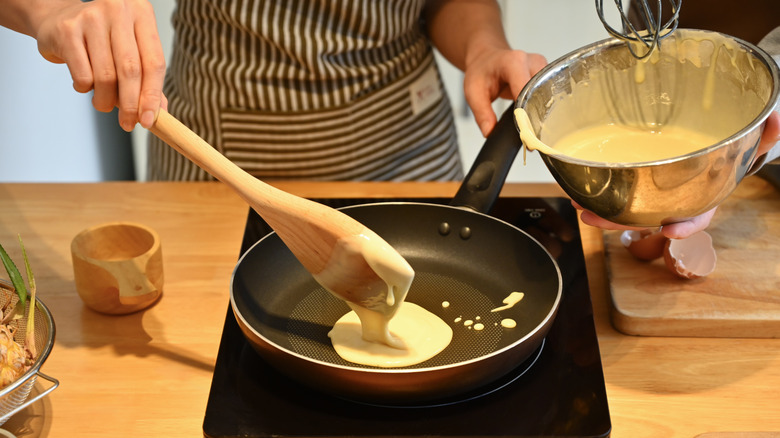Should You Always Throw Out The First Pancake?
Pancakes are always a good idea. They have the ability to evoke a sense of nostalgia, comfort, and excitement before they're even reached your mouth. A basic pancake recipe only requires three ingredients, which means anyone can make them — no matter their cooking skill. But regardless of how many batches you've made in your life, it almost feels like an unspoken rule that your first pancake will be soggy, greasy, and maybe just edible enough to nibble on while the rest cook — before tossing it in the bin. So, is there a way to not end up with a terrible first pancake?
Believe it or not, there is. The biggest reason that the first pancake is a flop is because the pan still isn't hot enough — and chances are it's over-greased. Adding the batter before the pan is ready means that the pancake will cook more slowly, absorb more oil, and not brown properly. And while greasing the pan stops your pancakes from sticking, a whole lot of butter or oil added in one go will just give you a greasy pancake.
How to make your first pancake a winner
If you're sick of wasting precious pancakes, make sure your pan is well-heated before adding in your batter. Only when the pan is hot should you add your grease — but not the way you think. Use a paper towel to coat the pan in butter or oil and then wipe most of it off, essentially seasoning your pan like you would cast iron. Now you can add in your batter. If you want to avoid pale flapjacks, using minimal fat is key to achieving evenly browned pancakes.
Another common downfall of the first pancake is that it's undercooked in the middle. That's why it's crucial you give it enough cooking time before flipping. The easiest indicator that it's time to flip is when bubbles form all over the pancake and the edges look set. Adding too much batter can also leave you with a raw center, so stick to ¼ cup of batter or less. With these tips, your first pancake should be as delicious as the rest — and your bin won't be getting first dibs on it.

